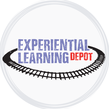|
Experiential learning resources for the innovative educator
Project-based teaching is taking the world by storm. Student-led project-based learning in schools could revolutionize education as we know it, instilling in learners a lifelong passion for learning and preparing them for the future. But can this transformation happen if student-led PBL in schools operates inside a vacuum; inside one classroom, facilitated by only one teacher in a school of 20 teachers? Likely, not. So I encourage project-based teaching school wide, and WHY I encourage that is the focus of this post. I have been teaching educators, parents, principals, and program directors about student-led project-based teaching for about 5 years now. A common theme inevitably comes up: some of the teachers and educators of any given school are doing student-led PBL while others are not. In other words, there is a disconnect between the models, philosophies, and visions of staff members of the school or program, and that disconnect trickles down to students in a not-so-good way. That can make things super complicated, overwhelming, and isolating within a community that should be on the same page. For example, I heard from a teacher this past year who wanted to start student-led project-based teaching with her students, but she was the only teacher doing it in the whole school. She felt isolated and unsupported. I talked with a director of a school who wanted all staff members to implement student-led project-based learning in the school, but he was met with a lot of resistance from some staff members and excitement from others. The benefits of student-led project-based learning in schools are there, no question. You can certainly explain the benefits to teachers. But again, that will inspire some teachers but not others. You can show example after example of student-led PBL in schools to get teachers inspired, and again, some will be inspired and others will not. But nothing will be as effective as taking project-based teaching school wide. When project-based teaching is consistent across programs, all teachers not only implement student-led PBL in their own classrooms, but they work together to build a school culture and mission around student-led PBL. So here’s my suggestion: discuss with ALL staff members the importance and benefits of scaling student-led project-based learning in schools using the five points discussed in this post. Share those benefits and then download the following free school wide project-based teaching checklist. This checklist is a step-by-step how-to guide for scaling student-led project-based learning in schools; for building that shared process, culture, and vision. Resistance to student-led PBL often stems from exhaustion. Teachers don’t need more on their plates, such as learning how to scale project-based learning schools. So give them the why and the how on a platter. Now, let’s get into why project-based learning in schools is SUCH A GOOD IDEA! Advantages of School Wide Project-Based Learning in Schools1. Streamlines Learning School wide project-based teaching gets everyone on the same page; students and staff. When philosophy, goals, vision, structure, schedule, strategies, systems, and even learning tools are shared, the PBL implementation process of student-led project-based learning is SO MUCH SMOOTHER. And smooth is what we want, right? No one wants to deal with the extra challenges that come along with inconsistencies across classrooms. Those challenges include student confusion, classroom management issues, frustration and arguments between colleagues, and more. Who has time for that? Project-based teaching consistency in schools irons out these unwanted hangups that cost us all the time and energy that we don’t have enough of as it is. 2. Built-in Support System One of the best parts about scaling PBL in schools is that you get a built-in system of support and mentorship. Remember the teacher I told you about that told me how isolated she felt being the only teacher in her school taking on student-led PBL? That feeling is eliminated when the entire school is working toward the same goals and mission. Imagine you want your students to design PBLs around a heritage theme, and you want to give them structure, but aren't sure how. You pop over to your teacher bestie’s classroom and bounce ideas off of each other, and you can because your teacher bestie ALSO knows how to design and scaffold PBLs. Let’s say you are having trouble keeping track of all of your student’s PBLs. You ask for advice from one of your PBL colleagues who gives you a spreadsheet that she uses to stay organized. Problem solved. If you were the only one teaching project-based learning in the school, going to your neighbor for advice, tools, and brainstorming sessions wouldn’t be an option, and that can be really difficult and debilitating. 3. Collaborative by Nature One of my favorite parts about working in a project-based learning school is the collaboration and partnerships that can be formed not just between teachers but between students as well. For example, my colleagues and I design and execute PBLs together, which all of our students can participate in if they choose. For example, I have a background in biology and one of my colleagues has a background in math. Together we designed a subject-integrated PBL around building a pollinator garden. He helped students build raised beds for the garden. I helped my students design and lead their own PBLs related to different pollinators and their needs. This is project-based teaching collaboration at its finest. Teachers often team-teach project-based classes or seminars as well. The way we’ve scaled student-led project-based learning in our school also allows for students from different classes and advisories to do PBLs together if they choose. We even have school-wide committees that are reflective of project-based learning. For example, one of those is an exhibition night committee. This group of students work together to plan and host project-based learning exhibition nights where students showcase their PBLs. 4. Shared Benefits School wide project-based teaching also has an equity component. As I’ve said, there are a variety of advantages and positive outcomes that come along with PBL in schools, so why should some students in the school have the opportunity to gain those outcomes and not others? Student-led PBL results in content knowledge AND 21st-century skills. Student-led PBL is real-world, personalized, and meaningful, which results in a passion for learning and the intrinsic motivation to learn. Student-led PBL prepares students for the future and a lifetime of learning. Students manage their own deadlines, ask their own questions, and find information on their own. They are learning HOW TO LEARN because staff are collectively project-based teaching. What other learning experiences can do all of that? Is it fair and equitable to prepare some students in the school for life and not others? 5. Culture of Inquiry, Curiosity, and Self-Direction One of the reasons I would try to persuade you to take project-based learning school wide is for culture-building purposes. All schools have a culture, and that culture is built around something such as a framework, values, priorities, expectations, actions, beliefs and more. I urge you to make project-based learning the focus of that culture and to be intentional about building that PBL culture. A PBL culture is one of inquiry, curiosity, and self-direction. It is one where students feel safe taking academic risks. It is one that values mistakes and students can see failure as a learning opportunity. It is one that values student input, choice, and voice. It is a culture and community of passionate, lifelong learners. That shared culture just makes the learning community stronger. A culture will naturally develop in your school whether you like the culture that is being developed or not. It can be a self-directed PBL culture or it can be something else. But if what you want is for your school to take on a PBL culture, the entire school will need to be a part of it, and that requires consistent project-based teaching across classrooms. You’re not going to have a PBL school culture if only a teacher or two are actually doing student-led PBL with students. If you’re a school leader reading this, I want to stress the importance of support and clarity from you and other school administrators. Initiate and sustain the transformation process. Share the advantage of project-based learning in schools with all staff members and give them the confidence to take on student-led PBL with the free “how-to” checklist. I encourage you to go through this project-based teaching guide together as a group and brainstorm ways you, staff, and students can scale PBL together. You won’t regret it! If you have any questions or could use tips or support from me on school wide project-based teaching, please reach out. I worked in a PBL high school for 10 years. Also, one of the best ways to scale student-led project-based learning in schools is to have teachers use the same teaching tools and receive the same training. Check out some of these resources to help you get started: Browse professional development and workshop options to streamline training: Student-Led Project-Based Learning Blog Posts: Join our experiential learning Facebook group!
Did you know there is an experiential learning Facebook group? Check that out - Experiential Learning Community for K12 Teachers - and join in the discussion about experiential learning ideas! Find us on social media! Follow Experiential Learning Depot on Pinterest, Facebook, Youtube, and Instagram for more on experiential education, and check out my shop for experiential learning resources. Observe. Question. Explore. Share.
0 Comments
Your comment will be posted after it is approved.
Leave a Reply. |
Blog IntentTo provide innovative educational resources for educators, parents, and students, that go beyond lecture and worksheets. AuthorSara Segar, experiential life-science educator and advisor, curriculum writer, and mother of two. Categories
All
|














 RSS Feed
RSS Feed